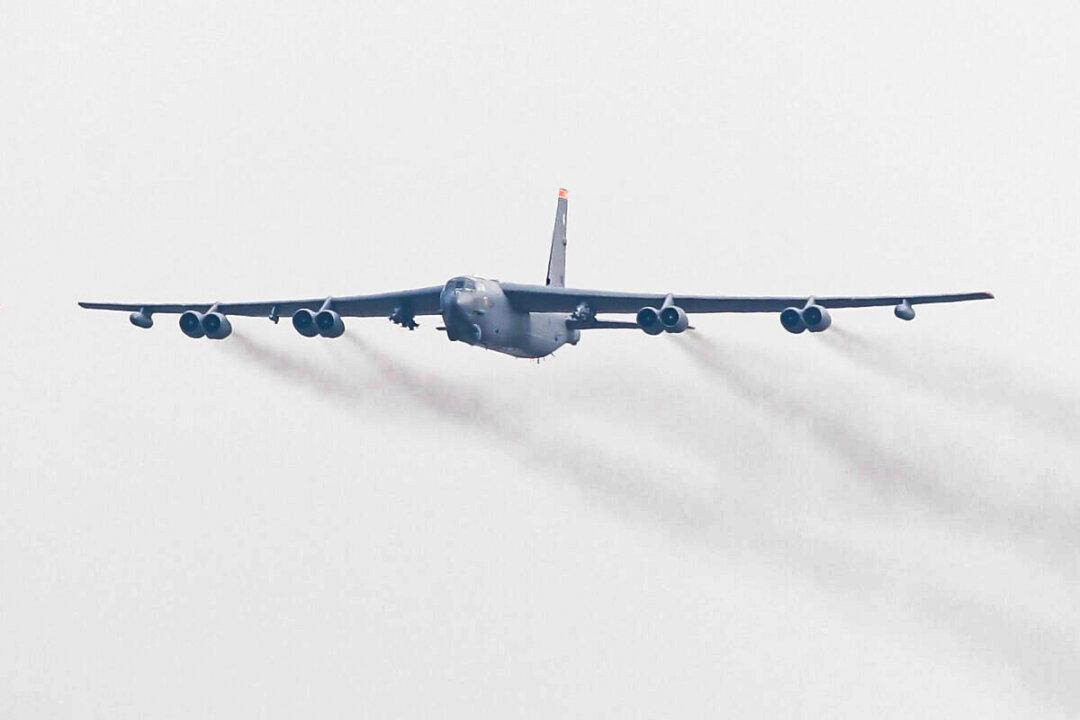The U.S. Air Force is preparing to deploy six B-52 bombers to northern Australia amid a steady build-up of U.S. military strength in the region in response to Beijing’s ongoing aggression, according to a news report.
Work is underway on dedicated facilities at Royal Australian Air Force Base Tindal, which is located 3 1/2 hours south of Australia’s northernmost city of Darwin.





